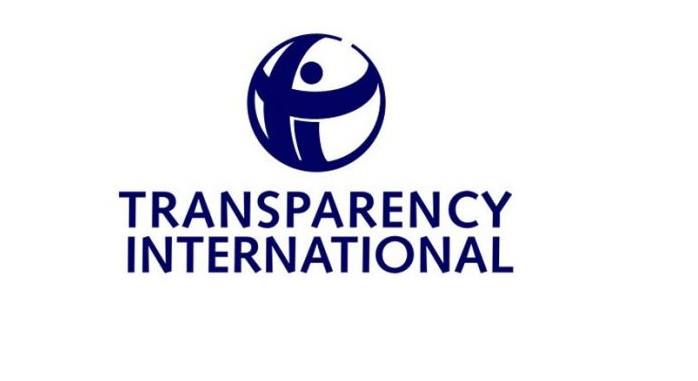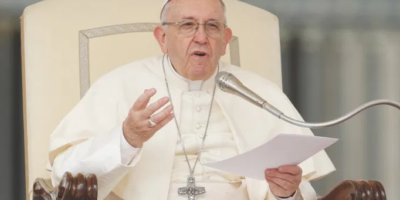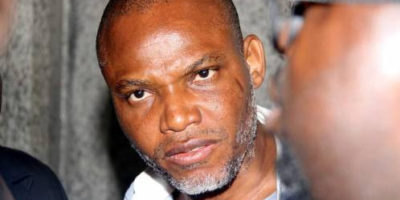TI Recommends Anti-corruption Reforms To Address #EndSARS Agitation

- Condemns excessive use of forces on youth protesters
- Says no proof of killing during Lekki’s shooting yet
Transparency International (TI), a global coalition against corruption, has recommended serious evidence-based anti-corruption reforms to respond to the concerns and grievances of #EndSARS protesters nationwide.
TI, currently championing anti-corruption in over 100 countries, also condemned the decision of the federal government to use excessive force and the continued perpetration of violence against peaceful protesters.
In a statement by its Chair, Dr. Delia Ferreira Rubio and Head of its Nigeria Office, Mr. Auwal Rafsanjani, TI noted that corruption was the root cause of the youth agitation against police brutality and bad governance in Nigeria.
As pointed out in the statement, Rubio said protests that began with demands for an end to police brutality and the Special Anti-Robbery Squad (SARS), had transformed into wider calls for an end to corruption and the looting of public funds.
She, therefore, suggested that the federal government should respond
to these calls with serious evidence-based anti-corruption reforms, including to the security sector, in dialogue with civil society.
She observed that corruption
deprives ordinary people of their rights to peace, health, security and prosperity. It robs young people of a future in which they can fulfill their potential, and it misappropriated the wealth of a nation for the benefit of the few.
Peaceful protesters exercising their right to freedom of assembly must never be met with violence and brutality. Citizens’ demand for an end to corruption must be heard and acted upon,
TI’s chair said in the statement.
Rafsanjani, Executive Director of the Civil Society Legal Advocacy Centre (CISLAC), asked the federal government to immediately stop deploying troops against protesters, who are exercising their rights under the 1999 Constitution.
He observed that the young people, who have taken to the streets, had a constitutional right to express their grievances through peaceful protest without facing violence and brutality from the state.
He said:
Together with our civil society partners in Nigeria, we stand ready to work with the government on the root and branch reforms needed for the police and security agencies, and to stop the looting of public funds through corruption.
We also condemn the violence and the destruction of property by groups that have infiltrated the peaceful protests.
TI’s Director, Defence & Security, Natalie Hogg observed that the appalling violence unleashed against peaceful protesters should henceforth end.
She said that the only way
to restore the much-needed trust in relations between Nigerian citizens and the security sector is to respect and protect basic human rights.
Further repressive actions against legitimate demands for an improved security sector in Nigeria will only escalate the situation.
Rafsanjani, TI’s country representative, observed that the shooting of peaceful protesters at Lekki Toll Gate Tuesday night
is becoming too controversial now. Apparently, we have been telling this government to be proactive in its reforms. But the government is not listening to anybody.
He lamented that the governments
allowed this unfortunate situation to happen. The initial protest was focused on governance and security sector reforms. Along the process, they allowed other people to come in. They started burning and destroying both private and public assets.
Up till now, we have not seen anybody that says my brother, my daughter or my son was killed. That is why the incident has become controversial. It is difficult to make an assertion until proper investigation. Without proper investigation, it will be difficult to make any pronouncement.
Nigeria’s score on Transparency International’s Corruption Perceptions Index has seen no significant improvement since the current methodology was introduced in 2012.
The 2019 Global Corruption Barometer for Africa found that Nigerians rate the police as the most corrupt institution in the country. Almost half of those surveyed reported paying a bribe to the police in the previous 12 months.
The Government Defence Integrity Index by Transparency International – Defence & Security rates corruption risks in the country’s security sector as very high, with extremely limited controls in operations and procurement.
While oversight mechanisms are in place, they often lack coordination, expertise, resources, and adequate information to fully perform their role.

Justin Nwosu is the founder and publisher of Flavision. His core interest is in writing unbiased news about Nigeria in particular and Africa in general. He’s a strong adherent of investigative journalism, with a bent on exposing corruption, abuse of power and societal ills.













